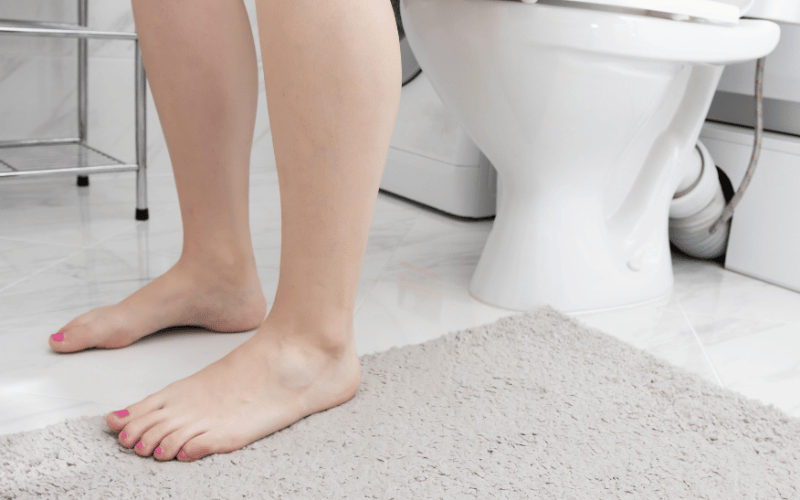9. Nocturia: The Midnight March

Ever find yourself making frequent trips to the bathroom in the middle of the night? While this might seem unrelated to breathing, nocturia, or nighttime urination, could be a lesser-known symptom of OSA. It disrupts your sleep cycle, and you’re left wondering why your bladder has such awful timing.
The connection lies in the hormone vasopressin, responsible for regulating urine production. When you’re not breathing correctly due to OSA, vasopressin production falters. It’s like the tap gets left open, and you’re making pit stops more frequently than a race car driver.
Now, don’t misunderstand—everyone needs to go sometimes. But when it becomes a nightly parade, you should be concerned. It’s like your body’s cry for help has taken a detour, rerouting through your urinary system. (9)